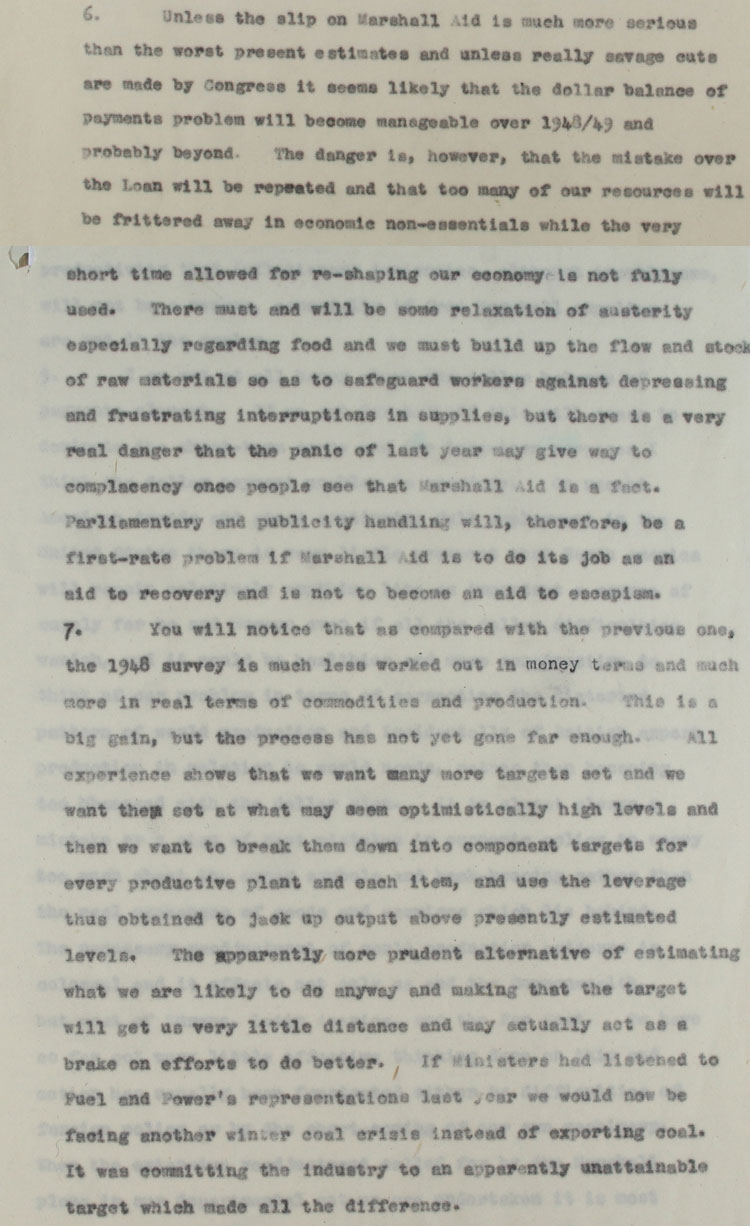
Extracts from an economic survey for 1948 sent to the Lord President, from E.M. Nicholson, 23rd December, 1947 (CAB 124/1050)
…
6. Unless the slip on Marshall Aid is much more serious than the worst present estimates and unless really savage cuts are made by Congress it seems likely that the dollar balance of payments problem will become manageable over 1948/49 and probably beyond. The danger is, however, that the mistake over the Loan will be repeated and that too many of our resources will be frittered away in economic non-essentials while the very short time allowed for re-shaping our economy is not fully used. There must and will be some relaxation of austerity especially regarding food and we must build up the flow and stock of raw materials so as to safeguard workers against depressing and frustrating interruptions in supplies, but there is a very real danger that the panic of last year may give way to complacency once people see that Marshall Aid is a fact. Parliamentary and publicity handling will, therefore be a first-rate problem if Marshall Aid is to do its job as an aid to recovery and is not to become an aid to escapism.
7. You will notice that as compared with the previous one, the 1948 survey is much less worked out in money terms and much more in real terms of commodities and production. This is a big gain, but the process has not yet gone far enough. All experience shows that we want many more targets set for every productive plant and each item, and use the leverage thus obtained to jack up output above presently estimated levels. The apparently more prudent alternative of estimating what we are likely to do anyway and making that the target will get us very little distance and may actually set as a brake on efforts to do better. If Ministers had listened to Fuel and Power’s representations last year we would now be facing another winter coal crisis instead of exporting coal. It was committing the industry to an apparently unattainable target which made all the difference.
